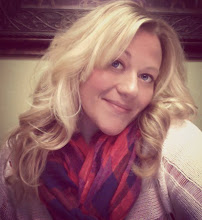We live in a world full of pain and injustice; there is no getting around that fact. We can hide from the truth or try to protect ourselves from reality, but just because we don’t want to know about it, doesn’t mean it still doesn’t exist. Our world does its best to hide its dark side from consumer’s eyes, and our school boards do their best to hide most of history from our children. It takes work to keep our eyes open wide enough to see reality. Thankfully, there are people out there who do try to be informed, who try to end injustice, to heal past wounds, and to make amends. Yet recently, as I was reading Eduardo Galeano’s classic book Open Veins of Latin America: Five Centuries of Pillage of a Continent, I came across an almost casually mentioned atrocity that jolted me with the reminder that, even for the people who are out there actively seeking to fight injustice, there remains one injustice that many would prefer to continue to ignore — the oppression of women. Across the world it is women who often face the worst injustices and yet are often brushed aside as not important enough to seek justice for.
In writing about how the sugar cane industry has destroyed the land and economies of many Latin American countries and led to numerous human rights abuses, Galeano mentioned that in certain plantations in Brazil (at least as of his writing) it was common practice for the plantation owners to claim jus primae noctis, or, right of the first night, with the daughters of their workers. Most commonly known to us from the movie, Braveheart, this is a medieval custom given to the Lord of an area — the right to the virgin night of all the women whom he ruled. Although in Medieval times the actual consummation was rarely if ever practiced, as many families chose the option of “giving” the Lord the bride’s dowry instead (what the Lord was after anyway), Galeano reports that on the plantations, the owners would demand the right to have their way with their workers’ 11 to 12-year-old daughters, in exchange for the worker remaining in their employment.
Reading this affected me in a visceral way. In the midst of a litany of oppression, I was reminded that women truly bear the brunt of injustice worldwide. Their bodies are chattel, they aren’t deemed worthy of education, and, if they get any food at all, they are fed leftovers. Because they are women, their oppression is magnified. Not only must they endure the poverty and the colonialism, but also the objectification of their bodies and the required subjugation of their wills. When voices for liberation or revolution arise, the women are called upon to endure hardships and make sacrifices, but it is never their liberation that is fought for. The few that call out for women’s needs to be addressed and for liberation to come to women are told that, in light of the greater injustices and oppression, their cause is just a selfish distraction. I hear it all the time in the church — there are just too many more important things to spend energy on than trying to bring justice to women. We aren’t even worth the effort of those that make it a point to care about injustice and the oppressed.
Feminist post-colonial theologians are quick to point out this imbalance. They ask: How can we say that we truly desire liberation if, in achieving that liberation, women still remain oppressed? They repeatedly insist that equality and respect for women should never be an afterthought, to be sought sometime after the real work of combating injustice is done, but instead it should be at the very foundation of what it means to seek liberation itself. Nations and races cannot ever fully work for reconciliation and mutual respect if those nations are built upon oppression from within. But sadly, theirs are not the voices that are commonly heard.
In recently reading non-Western theologies (both post-colonial and evangelical), I have in fact encountered the very opposite. Men, who write on combating injustice and prejudice by calling the church to learn from say Korean or First Nation theologies and church practices, insist upon, as part of that process, an affirmation of the gender roles that give men a strong (and sole) leadership role in the home, the community, and the church. They see a firm affirmation of this hierarchy of men over women to be integral to ending race divisions in the church itself. So not only are the needs of women ignored, but healing and justice are also proposed through the continued oppression and sacrifice of women.
Injustice and oppression make me sick and prompt feelings of rage inside of me. But reading about these young girls being raped as pawns in the never-ending cycle of colonial and commercial oppression left me feeling raw. This isn’t just about greed and economics. It isn’t just about racism and power-plays. It’s rooted in a subjugation of women that denies our worth and turns us into mere objects for men to use as they see fit. Most of the Western world hides behind their ignorance of history and injustice (often willfully sought) as an excuse to uphold the status quo. But when even those who claim to care about justice say that speaking out of behalf of women isn’t worth the effort, I can barely respond. How can justice be justice if it is only for men?
The above article is the work of Julie Clawson and I make no claim of ownership to it. You can find this article on the Sojourner's website by going to: http://blog.sojo.net/2010/09/15/justice-and-women/




































